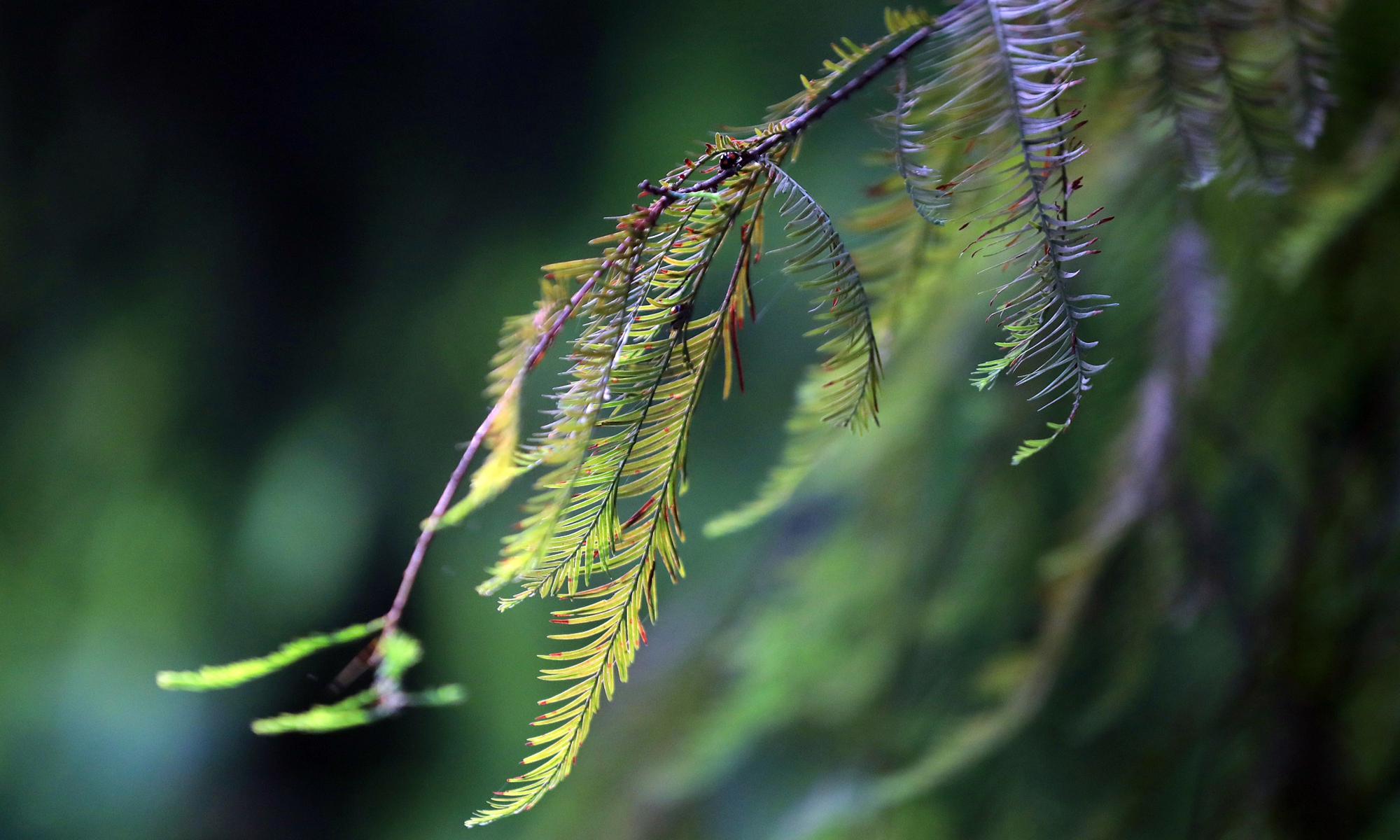
Photo: CFP
As the summer heat begins to wane and the days grow shorter, the traditional Chinese calendar ushers in the 13th solar term known as the Beginning of Autumn, or
Liqiu, on Wednesday. Marking the end of the sweltering summer and the beginning of cooler weather, this period signifies a time of transition and preparation for the harvest season, which lasts until August 22.
At this time, the average daily temperature in most parts of China has remained above 22 C for five consecutive days, so autumn in the meteorological sense has not yet arrived. In ancient China, this period was divided into three pentads, each reflecting changes in climate, dew and fauna. The first pentad marks the arrival of the cool breeze, which is eagerly awaited after the oppressive heat of the previous period. In the second, nighttime temperatures drop, causing moisture in the air to condense into mist and leading to the appearance of what is known as "white dew." In the third, summer cicadas shift from their loud and continuous song to the intermittent and subdued calls of cold cicadas.
There is a saying that goes, "If it rains on the day of the Beginning of Autumn, a good harvest is expected." The Beginning of Autumn is a pivotal moment for farmers, who adapt their agricultural practices to the changing climate. The cooler temperatures and reduced humidity create optimal conditions for crops like rice, corn, and sweet potatoes to mature. Farmers closely monitor their fields, ensuring timely harvests and planting to make the most of the remaining warmth and sunlight.
The Beginning of Autumn is not only an agricultural milestone but also a cultural celebration rich with traditional customs and practices. In some regions, there is a time-honored tradition of weighing people on this day. Families gather to compare their weights from the Beginning of Summer, or
Lixia, to the present, playfully noting any changes. This practice, though light-hearted, is rooted in the belief that maintaining a healthy weight reflects overall well-being.
In Hangzhou, East China's Zhejiang Province, the celebration of the Beginning of Autumn includes eating peaches.The peach stones are kept until Chinese New Year's Eve and then thrown into the stove and burned into ash. People believed that in this way, plagues could be prevented over the coming year.
There's also a culinary tradition that traveled through time. During the Qing Dynasty (1644-1911), people would put gourds outside for a day before the Beginning of Autumn, and then eat them on the day to drive off the summer heat. Today people in North China's Tianjin still keep this custom, believing that eating melons such as towel gourds, white gourds and bitter gourds can prevent diarrhea in autumn and the coming winter and spring. It is known as "eating autumn."
In addition to these culinary customs, the Beginning of Autumn is a time for health practices rooted in traditional Chinese therapy. As the body adjusts to the cooler weather, the high season for illnesses such as stiff neck, cervical spondylosis, and throat inflammation arrives.
Experts suggest people try cupping therapy as a solution. Indeed, the "mysterious Eastern power" of cupping therapy has also made an appearance on swimmers' backs at the Paris Olympics, including renowned Chinese swimmer Zhang Yufei, who sported cupping marks at the Olympic swimming venue when she was doing acclimatization training.
As the Beginning of Autumn arrives, the emphasis on aligning oneself with the season's changing energy is paramount. It is also encouraged to gradually reduce the consumption of cold food and drinks, which can shock the system. Instead, moderate physical activities are suggested that promote gentle sweating, help release toxins, and naturally cool the body.
The Beginning of Autumn, with its blend of agricultural significance, cultural richness, and health-conscious practices, is a time of harmony between humans and nature. As people across China celebrate this solar term, they honor the wisdom of their ancestors, embracing traditions that have been passed down through millennia to maintain health, ensure a bountiful harvest, and welcome the cool embrace of autumn.




